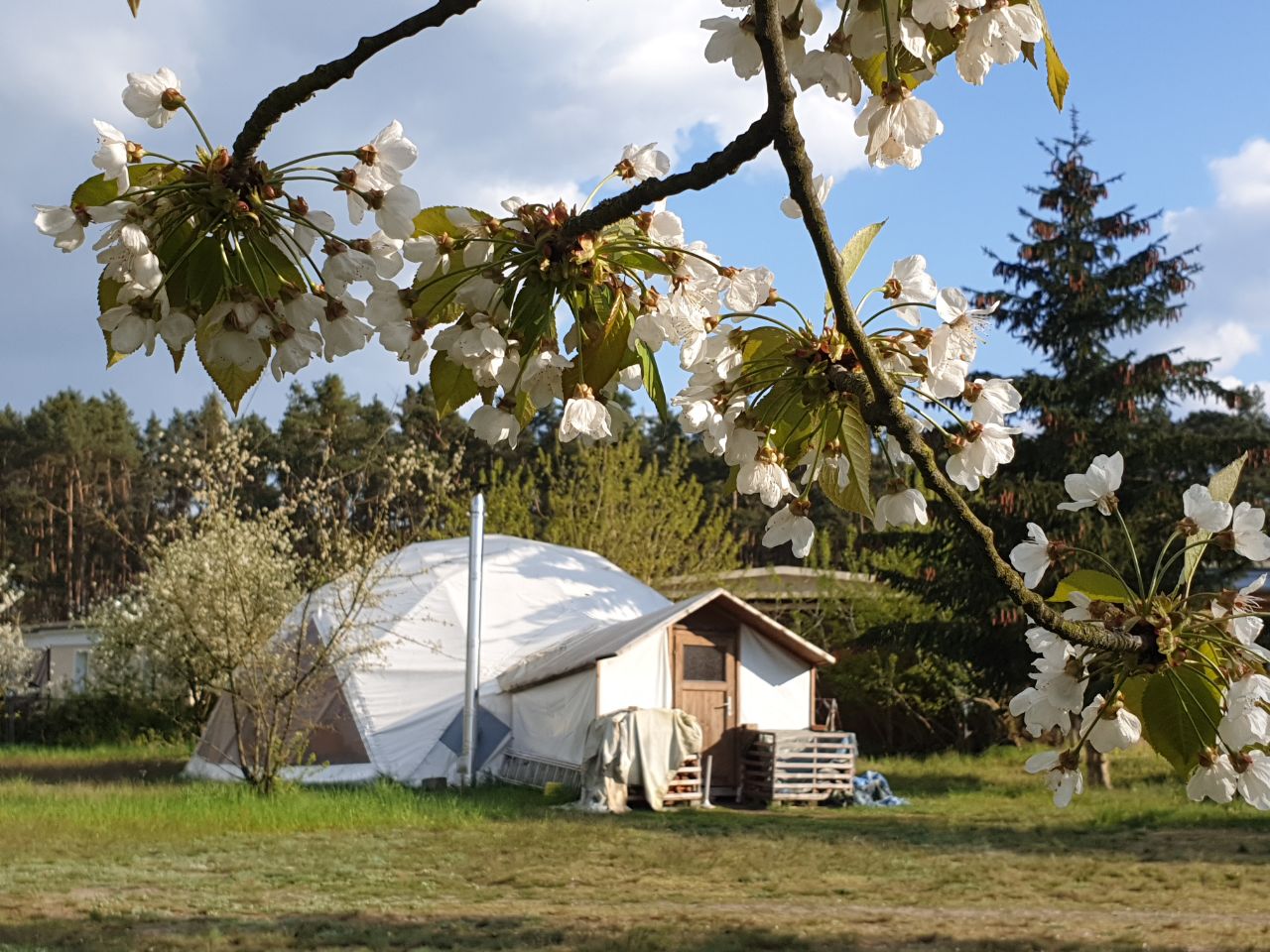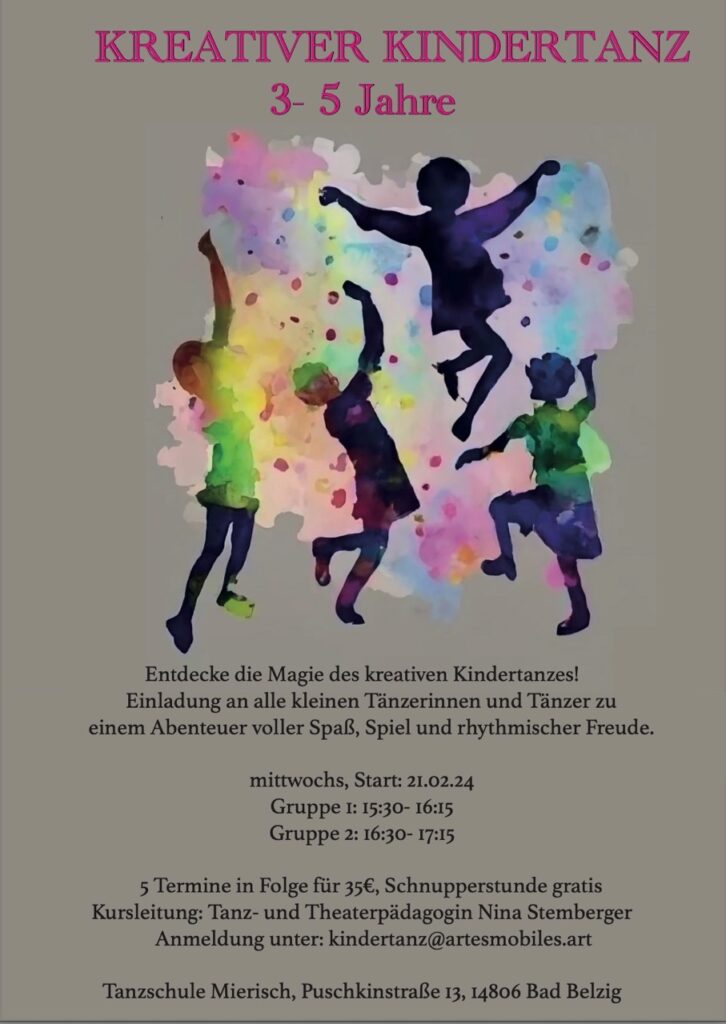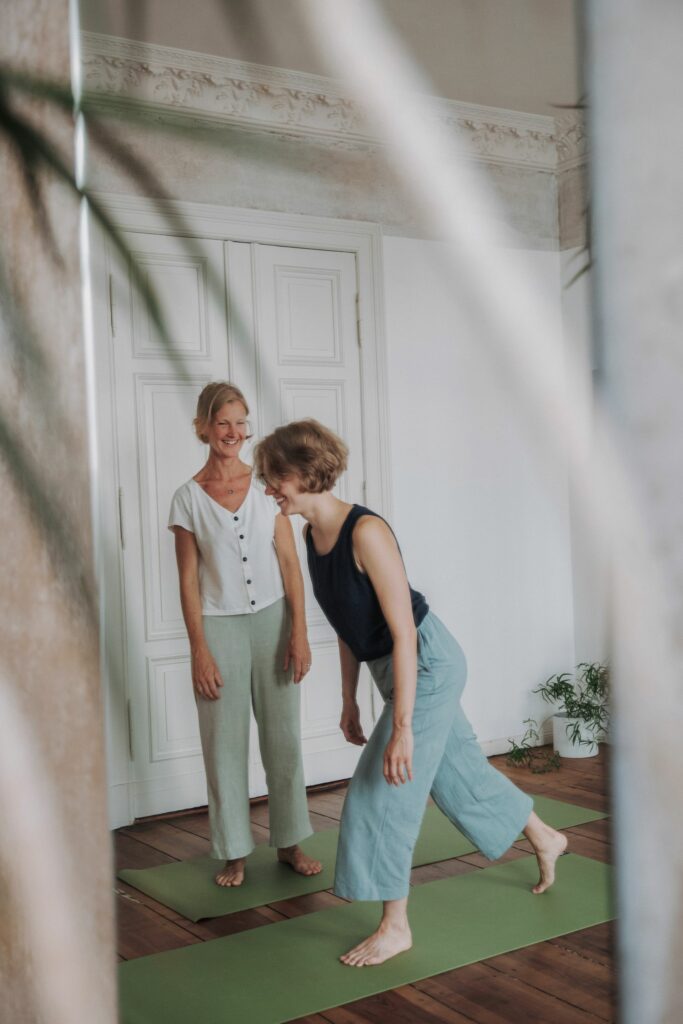
Agri/cultural practices for climate justice: anti-racism, arts and ecologies — a workshop in three parts
Oktober 26, 2023 @ 16:00 – Juni 23, 2024 @ 17:00

Core facilitators are:
Mojisola Adebayo, Asmelash Dagne and Nicole Wolf
+ guests Mama D. Ujuaje, Sandra Passaro and others
Groß Kreutz, Brandenburg, Germany
Dates:
26.-29. Oktober 2023
4.-7. April 2024
20.-23. Juni 2024
+ online events in between workshops
Are you interested in fighting racism and addressing climate injustice?
Would you like to explore how theatre, art practices and agroecology can work together? Are you Black, of African or Asian descent, an Indigenous person or Person of Colour, from a migration background or a white person actively committed to anti-racism? Can you commit to three residential gatherings to collectively develop tactics for climate justice?
If so – read on!
What is the workshop about?
Agri/cultural practices for climate justice is an experimental workshop series that provides an embodied in-depth introduction to agroecology ethics and principles and sustainable landscape design through games and exercises from Theatre of the Oppressed. Both Agroecology (including permaculture) and Theatre of the Oppressed are informed by Indigenous and Black knowledge and experiences. This workshop is based on this acknowledgement and focuses on anti-racism and decolonizing practices by confronting power structures, starting from the fundamental link between colonialism, plantation culture and the environmental crises. Aimed at rehearsing solutions for change that acknowledge the remains of plantation culture, the workshop playfully and accessibly explores how through artistic practices and conscious design of sites we can alter and expand agri/cultural principles and develop tactics for climate justice.
The workshop series includes active design and practical land-based work at the workshop site – a garden and seminar space in development – with the aim to collectively develop an accessible model site that foregrounds anti-racism in agroecological practices.
What will we be doing?
We will engage in theatre games and exercises to learn, alter and expand agroecological ethics and principles, develop scenes and rehearse for change through Theatre.
We will explore multi-sensory observation of the land, reading, viewing films together and discussing, receive impulses from guest facilitators, have groups and individual space for creative writing and other practices you follow (drawing, filming, movement etc.), share the skill set and experiences of the group.
We will collectively experiment with sustainable design techniques, do practical work in the garden, and start implementing design suggestions.
We can also enjoy the countryside, walk, swim, relax and eat healthy food made on site.
Where and when will the workshop take place?
Each part of the residential workshop takes place in Groß Kreutz, Brandenburg, Germany
When: 26-29 October 2023 / 4.-7. April 2024 / 20.-23. June 2024
Workshops start Thursday afternoon and end Sunday afternoon. Detailed schedules will be sent in advance of each workshop. Please note: participation at all three workshops is required.
We will offer three online events in between the workshop dates, delivered by international guests.
Who is the workshop series for?
The majority of workshop places will be offered to people who are Black, of African or Asian descent, Indigenous and People of Colour. White participants can participate if their work is based on active acknowledgment of the existence and effects of structural racism and have gone through a critically self-reflective process to address their white privilege.
No specific professional or knowledge background is required but an interest in and commitment to the work of climate justice and anti-racism. The commitment to all three parts of the workshops series is a requirement and the workshop might work best for those who can connect the workshops and its aim with their own work and activism.
Who will be facilitating the workshop?
Mojisola Adebayo
Mojisola is Black-British (Yoruba/Danish) lesbian playwright, performer, producer, facilitator, Professor at Queen Mary, University of London and research fellow at Potsdam University. Mojisola holds a BA in Drama and Theatre Arts, an MA in Physical Theatre, a PhD in Black queer theatre (University of London). Mojisola trained extensively with Augusto Boal and is a specialist in Theatre of the Oppressed, working particularly in locations of conflict and crisis. Mojisola has worked in theatre, radio and televisionover the past 30 years across four continents, performing in over 50 productions, writing, devising and directing over 30 plays, from Antarctica to Zimbabwe. Their own plays are concerned with racism, climate change, slavery, occupation, homophobia, Islamaphobia, gender-based violenceand the Black Lives Matter movement. Publications include several of her plays in Mojisola Adebayo: Plays One and Plays Two (Oberon Books), Family Tree (Bloomsbury Methuen), 48 Minutes for Palestine (Methuen), The Theatre for Development Handbook (Pan, co-written with John Martin and Manisha Mehta), Wind / Rush Generation(s) (in National Theatre Connections 2020, Methuen) and Black British Queer Plays and Practitioners (Methuen, co-edited with Lynette Goddard. Mojisola is a Writer on Attachment to the National Theatre in Britain.For more see www.mojisolaadebayo.co.uk
Asmelash Dagne
Asmelash was born and raised in Ethiopia. His qualifications include: Diploma of Integrated Natural Science (Hawassa college of Education/Ethiopia), Bachelor of Natural Science (Arba Minch University/Ethiopia), Permaculture Design Diploma (At permaculture institute of Britain/England) and Master of Science in Environmental Resources Management at the Brandenburg University of Technology Cottbus – Senftenberg/Germany with a focus on utilizing renewable energy technology to ensure sustainable access to clean water, energy and food in most vulnerable areas of countries in the Global South. 2008-2013: I started my career in 2008 as an integrated natural science teacher and “Permaculture” practitioner. In the years to come, I have received eight regional and national prizes for remarkable achievements in creating a modal education and innovation center for sustainable integrated natural resource management in Ethiopia. 2014-2016: I worked as a “Permaculture” trainer and consultant for SMART-Ethiopia (Sustainable Management of Alternative and Renewable Technologies). I trained over 2000 farmers, students, teachers, and agriculture extension workers in collaboration with various stakeholders (CISS – Ethiopia, LVIA – international, Slow Food International, and others). 2017 – 2018: I worked as assistant general manager at SMART – Ethiopia to install and manage seven solar water pumps to ensure sustainable access to water, energy, and food. I trained farmers and extension workers on integrated resource management. Since 2019 I have been involved in planning and designing a multi years project on Agroforestry for sustainable development of human and nature in rural Ethiopia as external consultant, environmental consultant and trainer @ EcoPhi Renewables Engineering GabH. See https://bestecodesign.wordpress.com/
Nicole Wolf
Nicole (she/her) is a white queer researcher, writer and Senior Lecturer in Visual Cultures (Goldsmiths, University of London) living in Berlin and London. Her background is in exploring political cinemas for their capacity to resist what is deemed to be real and to imagine otherwise. Much of her research and thinking has been inspired and informed by artistic and activist practices in South Asia, in particular intersectional feminist work in India and those that engage with military occupied Kashmir. Cinema’s role in processes of decolonisation has been in the foreground of her research, teaching and curatorial work. Nicole trained in Permaculture in 2014 (at Ecodharma/Ulex, Spain), followed by two PC teacher trainings including Rosemary Morrow’s course in Srinagar, Kashmir. Since then she has been passionate about connecting her research interests in critical ecologies, anti-colonial environmentalisms, agroecology and creative practice, exploring agriculture as resistance practice and what a cinematics of the soil might be. Collective learning and making processes which respect diverse and often submerged knowledges are crucial for all of these questions. Nicole’s participation in ‘Living Archive – Archive Work as a Contemporary Artistic Practice’ and ‘Archive ausser sich’ (both projects by Arsenal – Institute for Film and Video Art, Berlin) included extensive research and writing for the restoration of film works by Yugantar, the first feminist film collective in India, accessible @ yugantar.film, as well as the development of “Soil – City- Solidarity”, an interdisciplinary urban permaculture design course (with Alfred Decker), complemented by the symposium “’Tell me what matter was the ground’ – Repair beyond redemption”. In collaboration with Mojisola Adebayo, Nicole has developed the “Agri/cultural practices for climate justice” workshops since 2019. Selected publications can be found here: https://www.gold.ac.uk/visual-cultures/n-wolf/
Mama D. Ujuaje
Of the African diaspora routed through the Caribbean, Mama D Ujuaje is a creative, a community researcher and learning facilitator. Trained in Agriculture and Horticulture with experience living and working with communities urban, forest, savannah and degraded across East and West Africa and the Caribbean. She has developed a variety of interactive learning experiences and explorations around the constitution and wielding of power at different social scales and geographies. She explores and examines the constructs of modernity/coloniality which disrupt and divert attention from somatic and social healing, repair and revitalisation. Her deep care and consistent attention is recognised as a critical mechanism through which working and living relationships have been successfully negotiated at different levels of organisation: of both human and plant lives.
She is a Community Researcher and Facilitator whose background is in Nourishment praxis and embodied and art-based advocacy towards Socially Transformative Justice. She currently curates, within Community Centred Knowledge, Learning Journeys, exploring the interfaces of community, legacies of colonialism and the modernity which is constituted by it and systems of justice via art, culture and other than human ‘lenses’. She uses embodied, multi-sensory and action research methods to interrogate the interfaces of both community and academic institutional knowledge assemblage and flow. She is interested in how humans navigate justice issues over time and space and how all beings manage personal and social trauma within bodies located across the ecologies and territories of the Anthropocene. Mindful and sensitive to the value of cultural, social and ethical archetypes through which human sense-making is articulated, she encourages a range of creative authenticities to connect, co-inform and strengthen participatory and engaged learning and praxis. Mama D has been invited to a variety of spaces to share innovative, decolonial art-based learning practice and to work alongside others to co-produce community centred learning. She is a plant whisperer traversing old and new worlds of the pluriverse.
Sandra Passaro
is a lecturer (e.g. NYU), curator (e.g. HKW), qualified designer for applied permaculture and founder of Hungry Cities, Hyper Culture and Co-Creator of the Norient digital space. She conducts transdisciplinary research at the interface of culture, society, education, nutrition and the environment. Passaro has been developing programs for cultural institutions and independent cultural producers for 20 years. For over ten years she has been designing, advising and supporting community-building processes in independent international networks, as well as environmental and cultural projects commissioned by the federal, state and city governments. She helped launch the agroforestry campaign and co-designed the development of the Friedrichshain/Kreuzberg environmental education center. She also heads the regional base year east of the Permaculture Academy in Germany, an educational center for sustainable development (ESD) recognized by the UNESCO Commission and the Federal Ministry of Education and Research. Her concern is to design inclusive virtual or physical spaces in which dialogues and transdisciplinary work between people of diverse cultural backgrounds are made possible. Through the creation of transnational projects as a cultural curator and permaculture designer, she actively implement anti-racist, and decolonizing approaches since 2014. „Social systems work like ecosystems.“ For Sandra Passaro, culture and nature are closely intertwined. Their transdisciplinary approach to systemic environmental design and the promotion of „more than sustainable“, yet regenerative development (on a social and natural level) is based on ecosystem criteria and thus the principles of diversity, cooperation, networking and self-organization. Topics such as food safety and nutrition are her passion. She feels that natural food preparation is our cultural heritage and should be preserved. The key for her is “food literacy”, which is why she is currently researching conceptual systems, such as the productive ecosystem “forest garden” and “syntropic agroforestry”, as well as “regenerative landscapes” and “water management”. https://www.hungry-cities.net/, https://www.hyper-culture.net , https://norient.com/
What other practical information can you give?
Schedule:
- Thursdays: arrival from 3pm is welcome. The workshop will run from 5pm-9pm (including mealtime)
- Fridays and Saturdays: 9am-9pm (with regular breaks, meals and optional evening programmes)
- Sundays: 10am-4pm (with breaks and mealtime and time to enjoy the countryside)
Accommodation: Ideally all participants will stay at the workshop site. Accommodation will be simple, clean and basic – camping and indoor shared spaces. It is possible to rent private holiday apartments next door (extra cost).
Transport: Train from Berlin to Gross Kreutz takes 50 minutes. A shuttle service will be provided from the station to the workshop / accommodation. Driving to the venue and parking is possible. Taking the train as a group can be organized before.
Food, cooking and cleaning: Vegan / vegetarian food will be provided by an on-site cook. Please let us know if you have any dietary restrictions. All participants are expected to share in tasks such as food preparation and cleaning up after meals and the schedule will provide space for this.
Maximum number of participants: 16. The majority of participants will be Black, Asian, Indigenous and or People-of-Colour. Part of the work will be in smaller groups and break out groups will be facilitated.
Language: English, with German translation if needed.
Childcare: Please let us know if you require childcare and we can discuss this.
Access: Please let us know in advance of any access needs. Unfortunately, the venue is currently not yet accessible to wheelchairs. However, do get in touch to discuss your access needs and we will try to facilitate participation.
We will apply a Covid-19 safety policy, even if current laws don’t require that.
*Costs: The workshop is free for Black, Asian, Indigenous people, People of Colour, refugees and non-white migrants to Germany. For others, we ask for a solidarity ticket of 300-1200 Euro (depending on what you can afford). This covers extra online events not covered in the founding. If you are not able to pay the minimum but wish to attend, do get in touch to discuss possibilities!
Partners: This workshop is made possible through the generous support of Bundeszentrale für Politische Bildung and Havel Kranich.
How do I apply and ask further questions?
Email: info@havel-kranich.org today and let us know:
- A little about you, including how you identify (e.g. Black, Asian, Indigenous, Person of Colour, white, LGBTIQ+, person with a disability … this list is not exhaustive)
- Why you would like to do the workshop and where or how you plan to take the work forward
- Any questions, requests or needs that you have
Thank you – we are very much looking forward to hearing from you!



